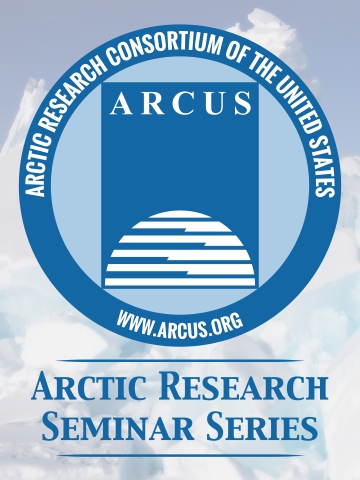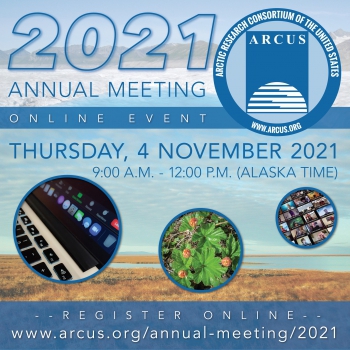ARCUS invites registration for the next Arctic Research Seminar featuring Dr. Vladimir Romanovsky, Professor Emeritus in Geophysics at the Geophysical Institute and the Department of Geosciences, University of Alaska Fairbanks, titled "Planning and Implementing the Thermal State of Permafrost Monitoring System in Alaska - 28 October 2021" will be held via Zoom.
Registration is required for this event. Instructions for accessing the webinar will be sent to registrants prior to the event.
Abstract
The configuration of any monitoring system depends on the major goals and purpose of monitoring and the reason for what the data of this monitoring will be used. The Thermal State of Permafrost (TSP) monitoring system was initiated by the United State Geological Survey (USGS) in the 1940s and 1950s as a set of ground temperature observations in a number of deep (200 to 1000 m) boreholes. The main reason for these measurements originally was the investigation of the geothermal conditions in Alaska. However, in the 1970s and in the beginning of the 1980s, the interpretation of the obtained data showed that a significant warming in the upper part (20 to 50 m) of many boreholes has occurred during the mid-20th century (Art Lachenbruch and Max Brewer with colleagues).
About this time, another TSP monitoring system was established in Alaska by the Geophysical Institute at the University of Alaska Fairbanks (UAF) under supervision of Prof. Emeritus T.E. Osterkamp. Since then, these two monitoring systems are the most active and most productive in terms of TSP data collecting and interpretation.
[Please follow the link above for the full abstract.]
Speaker Details
Dr. Vladimir Romanovsky is a Professor Emeritus in Geophysics at the Geophysical Institute and the Department of Geosciences, University of Alaska Fairbanks. He also heads the Geophysical Institute Permafrost Laboratory (www.Permafrostwatch.org). His work involves internationally coordinated research on permafrost temperature changes in Alaska, Russia, Canada, Greenland, Kazakhstan, and Mongolia. He is also involved in numerical modeling of past, present and future permafrost dynamics and the remote sensing of permafrost and periglacial processes. Vladimir’s research interests include the scientific and practical aspects of environmental and engineering problems involving ice and permafrost. Vladimir is the author of 280+ refereed journal publications, many reports, and book chapters. His scientific publications were cited 3,226 times by various authors in 2020 alone, and the total number of citations of his work is 28,760.
Dr. Romanovsky received his MSc. in Geophysics, MSc. in Mathematics, and Ph.D. in Geology from the Moscow State University in Russia. He also received Ph.D. in Geophysics from the University of Alaska Fairbanks. He had several research and teaching positions at the Moscow State University. He moved to Alaska in 1992 and is currently a professor at the University of Alaska Fairbanks.


